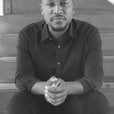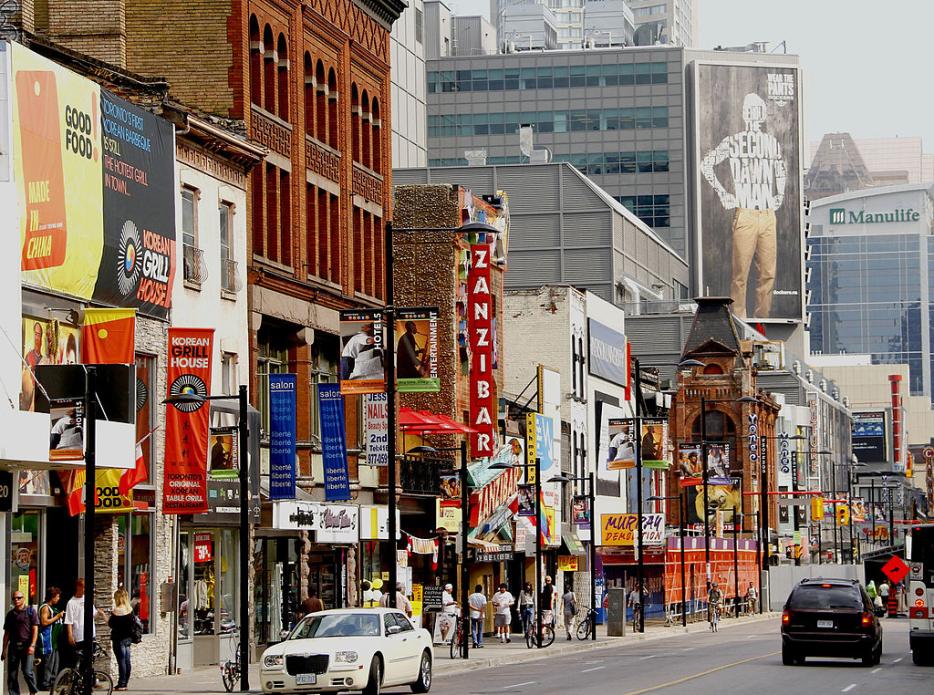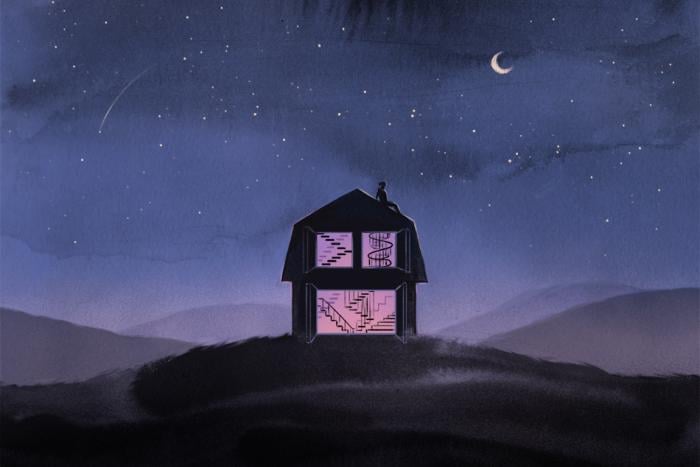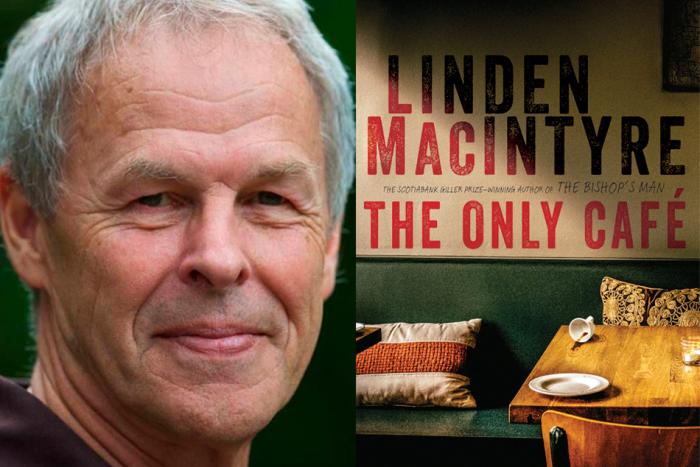The other day I turned on the evening news to find my childhood friend staring out at me from the TV screen. Kevin* had been charged with serious crimes. He looked haggard, scared and resigned. Whatever he was going through, whatever trouble he was in, had clearly aged him beyond his years. Had I not known him for as long and as closely as I have, I may not have recognized him.
Several years ago, while walking along Yonge Street in Toronto, a slap thundered across my back. It was Kevin. He still had that big toothy grin and that huge resounding laugh, which erupted and spilled out into the street the moment we locked eyes. I was happy to see him. We stood and talked while mildly annoyed passersby swirled around us. Something was calling him away. It would have to be a warm but short encounter. We exchanged numbers, hugged and promised to stay in touch. We never did.
When we were young, Kevin dreamed of owning a business. It was his singular vision. He planned on making it big in the music industry. He would buy his mother a house, spend his well-earned C.R.E.A.M on flashy accoutrements, and travel the world. That he would make it all happen required no convincing. It was only a matter of time. Tall and affable, Kevin made friends easily. He and I spent a lot of time together, most of it applied to the business of exploring and showing-off our burgeoning Black masculinities, which were very much in demand in those heady Bobby Brown-infused school days. We became de facto representatives of Black culture in our mostly white school. We developed a reliable reputation as a swashbuckling R&B duo: he would spin all the right records at parties; I would warm up the dance floor.
Kevin and I had a lot in common. We were both raised by single mothers who struggled to provide, but we were, on the whole, fine. We had hordes of caring people around us, large and protective clans that complemented our mothers' love and made up for anything we may have lacked. Neither of us had a sophisticated understanding of the racial context in which our Black lives played out. In our fledgling minds we existed at the center of the world, not at its margins.
So it came as a complete shock when a flummoxed supply teacher cornered us one day, desperate to get a message across. “They’re watching you two,” he said. He spoke in that urgent but hushed tone reserved for secrets. “They’re waiting for you to fall on your faces.” We laughed. We had no idea what he was talking about. It never occurred to us that we were being “watched,” nor did it register that “they”—which we later understood to mean our white teachers—were expecting us to fail.
But over the years, those words of caution stayed with me. It is not a stretch to say that they ignited a race consciousness and an inner drive which I've used to push back against those predictions. In many ways, forecasted failure has been my largest source of motivation in everything I’ve done in life. As such, those words have remained as an indelible warning. Even after we grew apart, I always assumed those words had stayed with Kevin, too.
*
Since that moment in the hallway, I’ve tried never to fall on my face. I’ve wholeheartedly and incessantly ticked every status box within reach—high school graduation, university degrees, marriage, employment and home ownership—in a deliberate attempt to erect a stolid bulwark against failure and, more specifically as a Black man, against involvement with the criminal justice system. Secure within my upwardly mobile middle-class ethos, I believed personal accomplishment would provide both protection and a pathway to well-being.
But I’ve not come through unscathed. I’ve fallen on my face numerous times. I spent ten soul-sucking years being precariously employed. This left me pained and depressed, fearing that I couldn’t escape what my teachers had foretold. Despite the generous amounts of education I have attained, I have struggled daily to subsist as a part-time college professor, which is a unique professional status that produces its own twilight zone of enlightened suffering. In that strange and suspended space, I’ve known the irony of being utterly penniless while haranguing students about the exploitative impacts of neo-liberal economics; I’ve given numerous lectures on the increasing racialization of under-employment, wounded by every stat that betrayed my own wretched existence; I’ve known the isolating and deflating feeling of being the sole Black person in meetings purported to be focused on diversity and inclusion. And in my worst moments, I’ve known what it means to lose my home because—for reasons beyond my deepest comprehension—all of my hard work, planning, networking, learning, credentialing, smiling and striving wasn’t enough to pay the rent.
And yet I count myself as privileged because I know my challenges pale in comparison to the countless number of Black Canadians who have fared much worse. The evidence is there for anyone who has the stomach to look at it: massive over-representation in prisons; widespread racial profiling in policing and child welfare systems; entrenched underemployment and unemployment; shameful high school dropout and push-out rates; intergenerational poverty; housing discrimination; troubling health outcomes. All of these experiences have become synonymous with what is means to be Black in Canada.
And what about our responses to this unconscionable history of tribulation? In what way have we addressed what others have called a veritable “social death”?
*
In a crude form of social analysis, I’ve always placed my people into three broad categories. In the first group there are those who pay little attention to ongoing debates about race and identity politics. These are the self-described pragmatic folks, people who concern themselves with earning a living, raising their kids, paying their bills, keeping their heads down and not much more. Occupied primarily with securing basic needs, they have little to no time to reflect on how anti-Black racism has shaped and circumscribed their lives. This is not to say they are unaware. That would be untrue. However, they’ve mostly accepted that life is what it is, and aim to get along the best they can.
The second group is where I’ve situated myself: the hopeful reformers. We engage privately and publicly in discussions about race, and we strategize about how to improve our people’s lot. For the most part we, too, accept that our neo-capitalist economy is here to stay, so we subscribe to the grand idea that through persuasion, protest and perseverance, we—or, more likely our children or grandchildren—will one sweet day bring about a society founded on the principle of genuine racial equality. I’ve heard someone use the term “pessimistic optimists.” That aptly describes who we are.
The third group consists of Black people who also want change but have given up on the belief—if they ever held it—that such change can be realized through modifying our current white supremacist order. They therefore reject reform agendas and seek the complete dismantling of the status quo. They invest their time and polemic energies not in suggesting policy tweaks but in imagining totally new ways of being within a transformed society that looks nothing like our present one.
These groups have always existed alongside each other. There has never been a moment in history when all Black people agreed on the same political path to true emancipation. But in more recent times—in the face of overwhelming and seemingly intractable anti-Black racism—people like me, who proudly affirm membership in the second group, have started to struggle with significant doubt. We have begun to question the racial progress narratives that have motivated and sustained us for so long.
Seeing Kevin on the news renewed these doubts of mine. How did someone who shared in my childhood story, values and beliefs get caught up with the law? How did those vivid and lovely dreams of his come to ruin?
*
In 1999, during my third year at university, I met Andre* at the Fort York Armoury. He was one of hundreds of people in the city who sheltered there during the homelessness crisis that summer. I was one of the temporary staff hired to make sure the unprecedented situation didn’t get out of control.
Andre could be difficult. Sturdily built and grey-haired, he was strong and pesky right into his mid-seventies. He stomped around with a demanding air and shot death stares through his dark sunglasses whenever he didn’t get his way—which was often.
Andre was from the east coast—or “down home” as he taught me—where his family’s lineage extended back generations. He had fallen into poverty because he struggled to hold down jobs. This was because he always seemed to find himself in some scrap or the other. As a result, his relationships suffered, then his health followed. After years toiling in construction, he drifted west and settled down in Toronto, hoping to be left alone. He slept rough for several years until he moved permanently into the shelter system.
Despite a sharp intellect and early ambition, Andre’s life was essentially a hard and unhappy one. Hyper-aware of racism and his humble beginnings, he still managed to believe in fairness and was prepared to work his way up in the world. Although he wanted to be an engineer, he could only find manual labour jobs where he often ended up injured and received low pay. “Canada isn’t a nice place for Black people,” he told me on several occasions. “It’s like running into a big brick wall.” No matter how valiant his efforts, a decent and dignified life had eluded him.
One day I was called over to see about a dustup in the shelter’s dinner line. I found Andre and a heavy-set white man standing with their noses an inch apart, their fists cocked.
“What’s going on here?” I said, placing myself between them.
Andre’s chest heaved. His sunglasses were flipped up on his wrinkled brow, revealing his rheumy light brown eyes to me for the first time.
“He thinks because he’s an old man he can jump the line!” the other man barked.
“I did no such thing!” yelled Andre. “I’ve been waiting here the whole time!”
A crowd circled. People were starting to take sides.
Andre was known to push in where and whenever he could at the armoury. It was not the first time he had caused a scene by squeezing into places where others felt he didn’t belong. Playing by the rules hadn’t gotten him anywhere, he liked to remind me. “Look at me,” he would say, bearing his gnarled, arthritic hands as proof.
I had decided early on to do what I could. If it was within my power to make his life even the slightest bit easier, I would do so. It was my way of pushing back against the weight of injustice, against whatever forces had trapped and consumed him.
“Hey!” I shouted. The white man turned to look right at me. “Andre was here first,” I said. I stared straight back at him, finding conviction in my lie.
“Bullshit!” someone shouted. “That’s crap!”
“Sticking up for your own, eh?” chimed someone else.
Rage swept across the man’s wind-beaten face. He didn’t say a word. He just shook his head slowly and unceasingly, as though someone had told him a tall tale he couldn’t accept.
Shortly after that conflict, Andre disappeared. For weeks I asked around for him, but I never saw him again. I imagine he’s dead now, no more jumping the dinner queue, no more willing his way to survival.
*
Knowing that Black Canadians still find themselves living “at the bottom of the well,” I can no longer believe that progress narratives alone are an adequate response to the massive racial disparities which structure our society. Stories of gradual change, pushing against odds, and reforming systems of oppression from within have been completely exhausted. Seven decades after the dawn of the civil rights movement, fifty years since Black Power, and several months now into the Trump era, I'm prepared to conclude that our white capitalist social order is indeed beyond reform.
Does this then mean the end of the struggle for social justice and the acceptance of defeatism? Absolutely not. But it does mean that our current approaches have been proven bankrupt. It means the moment for visioning and articulating an "unthinkable politics" has finally come. And while it may take many lifetimes to achieve this, the liberating impacts derived from pursuing a transformed society are probably well worth it. As Lisa Marie Cacho reminds us, “the outcome of the struggle doesn’t matter as much as the decision to struggle.”
I have no idea where Kevin is today. There are days when I imagine him pent up in some dank cell. On other days, I picture him like he was when we were young, walking around freely, relieved that the criminal justice system hasn’t ensnared him. I look for him whenever I find myself walking along Yonge Street, hoping to pick up where we left off.
*Name has been changed






